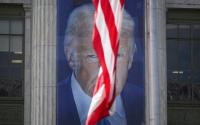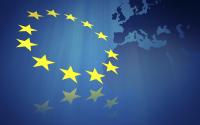9 September 2004 Daniel Dombey and Tobias Buck in Brussels
 The European Union should have a "plan B", as an alternative to opening membership talks with Turkey because of doubts about the country's democratic reforms and religious identity, a senior European Commissioner has said.
The European Union should have a "plan B", as an alternative to opening membership talks with Turkey because of doubts about the country's democratic reforms and religious identity, a senior European Commissioner has said.
| // |
In a nine-page letter to the 29 other members of the Commission, Franz Fischler, agricultural commissioner, harshly criticises the EU's approach to possible Turkish membership, one of the most important decisions the EU has yet faced.
"There remain doubts as to Turkey's long-term secular and democratic credentials," he says. "There could . . . be a fundamentalist backlash".
Because of such a risk, he calls for a "plan B, addressing the best ways to help Turkey keep up the reform momentum . . . [such as] a special partnership status".
The European Commission is expected to recommend next month that membership talks with Turkey begin, and a decision will be taken by EU leaders in December. In the past, all such negotiations have led to eventual membership of the EU. Many EU officials expect talks to begin next year, with 2015 as a possible entry date.
Many point out that Turkish membership has been EU policy since 1999, as long as the country meets human rights and political reform criteria.
"Religion is not a condition for membership," said one Commission official. "The important thing is whether you share the values of democracy and tolerance."
But Mr Fischler's intervention underlines the depths of disagreement within the Commission. Earlier this week, his colleague Frits Bolkestein spoke of the possible "Islamisation" of Europe and said that Turkish entry could make the EU "implode".
In all, at least six out of 24 commissioners have concerns about Turkish membership.
While the leaders of UK, Germany and France all say they want Turkey to join, an unclear message from the Commission could make it hard for the EU to begin negotiations.
Plans endorsed by Recep Tayyip Erdogan, Turkish prime minister, to make adultery illegal have added to the sensitivity of the debate.
Mr Fischler is also making an important contribution to a Commission study due next month on the consequences of Turkish membership. It focuses on the effect on the EU's common agricultural policy.
In his letter, he estimates that according to current rules, Turkey would receive about €11.3bn ($13.2bn) in agricultural subsidies every year. "The annual cost to the EU budget of such an accession in the agricultural sector alone would therefore be larger than for all the [10] new member states" that joined this year.
Other officials argue such statistics are meaningless, because the EU will have a new budget by the time Turkey joins.
Supporters of Turkish membership say that it would send a clear message to the Islamic world, strengthen the EU's defence capacity and improve security of energy supply.






